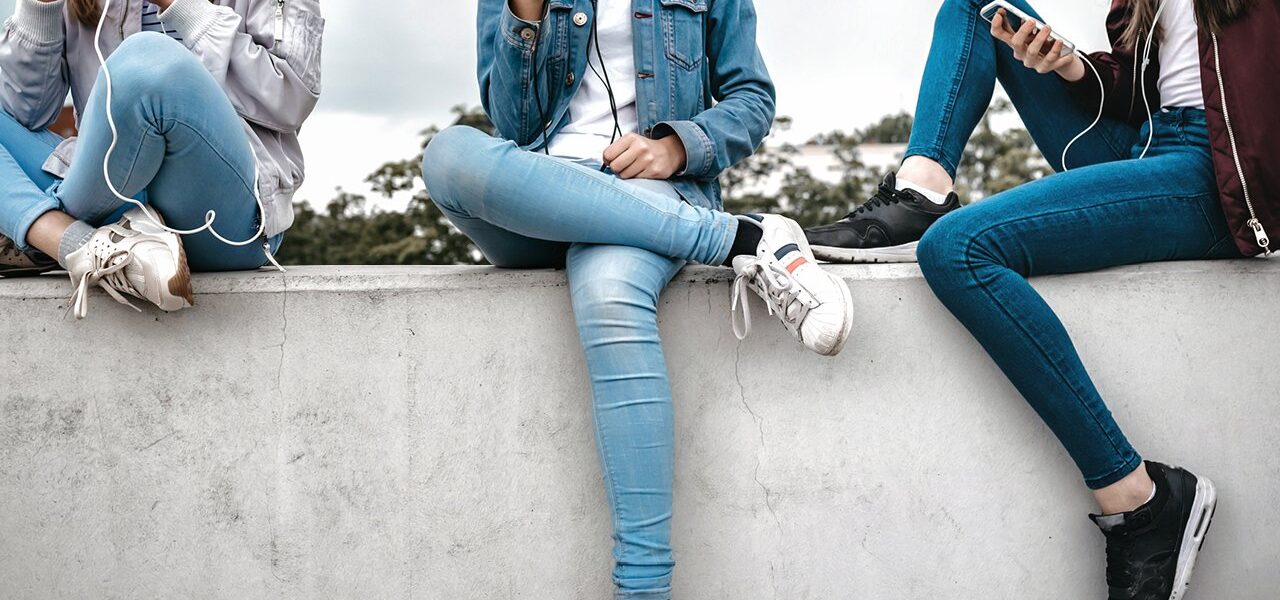Introduction
Social media is like a double-edged sword for girls today. On one side, it’s a powerful platform for self-expression and empowerment, while on the other, it can wreak havoc on self-esteem and body image. You might be wondering, “How are teenage girls navigating this tricky landscape?” In this article, we’ll dive into the impact of social media on girls' self-esteem, explore how they use these platforms for empowerment, and discuss the trends defining their online experiences. Grab your phone (or not) and let’s unravel the complex world of social media!

The Good, the Bad, and the Self-Esteem
Empowerment Through Connection
Social media can be an incredible tool for girls to build their self-esteem. Platforms like Instagram and TikTok allow users to connect with like-minded individuals, share stories, and find communities that uplift them. According to a study by the Pew Research Center, 57% of teenage girls feel empowered when they share their personal experiences online.

For instance, the #BodyPositive movement has gained traction on Instagram, encouraging girls to embrace their bodies in all shapes and sizes. This trend has sparked conversations that challenge unrealistic beauty standards, helping girls to appreciate their unique features rather than compare themselves to overly filtered images.
- Positive Affirmations: Girls are posting affirmations and motivational quotes, creating a ripple effect of positivity.
- Community Support: Online support groups are flourishing, where girls can discuss everything from mental health to beauty standards.
While social media trends among teenage girls can promote empowerment, they can also lead to pitfalls that affect their self-esteem.
The Dark Side: Comparison Trap
Let’s be real: social media isn’t all sunshine and rainbows. The comparison trap is a real issue that affects many girls. Scrolling through perfectly curated feeds can lead to feelings of inadequacy. A report from the Royal Society for Public Health found that Instagram is one of the worst platforms for mental health, especially for young women.

Here’s the kicker: studies show that 70% of girls compare themselves to others online, with many feeling pressured to meet unrealistic beauty ideals. This constant comparison can lead to:
- Lower Self-Worth: Girls might feel “less than” when they see influencers displaying seemingly perfect lives.
- Body Image Issues: Exposure to filtered images can distort body image perceptions, leading to unhealthy behaviors.
It’s crucial for girls to recognize these pitfalls and curate their feeds mindfully. Following accounts that promote authenticity and diversity can help mitigate the negative effects.
Safeguarding Privacy: A Must for Girls
In a world where oversharing is often the norm, safeguarding privacy is more important than ever. Girls are often at risk of online harassment and negative attention, so understanding how to protect their personal information is critical.

A survey conducted by the Cyberbullying Research Center revealed that 35% of teens have experienced cyberbullying. Here are some tips for safeguarding privacy on social media:
- Adjust Privacy Settings: Ensure that profiles are private to control who sees their content.
- Think Before You Post: Encourage girls to consider the long-term impact of their posts.
- Report and Block: If they encounter harassment, they should know how to report it and block offending users.
Teaching girls about online safety equips them with the tools they need to navigate social media confidently and safely.
Building a Positive Body Image Online
Creating a positive body image starts with what girls consume on social media. The narrative around body positivity is shifting, and girls are leading the charge. According to the National Eating Disorders Association, engaging with body-positive content can significantly improve girls' body image and self-esteem.

Here’s how girls are actively participating in this movement:
- Posting Real Images: Many girls are sharing unedited photos, showcasing their natural selves and promoting authenticity.
- Fostering Dialogue: Influencers and activists are using their platforms to discuss topics like mental health, self-acceptance, and the importance of loving oneself.
By surrounding themselves with positive influences and engaging in constructive dialogue, girls can counteract the negative messages often perpetuated online.
Conclusion
The impact of social media on girls is multifaceted, with both empowering and detrimental effects. While platforms provide opportunities for connection and self-expression, they also pose challenges related to self-esteem and privacy. It’s vital for you, as a parent, educator, or peer, to encourage mindful social media use and foster a culture of positivity and support.
So, next time you scroll through those feeds, remember: you have the power to shape your online experience. Focus on the uplifting content, safeguard your privacy, and embrace the authenticity of yourself and others. Let’s make social media a space where girls can thrive—because when they feel good about themselves, the sky’s the limit!